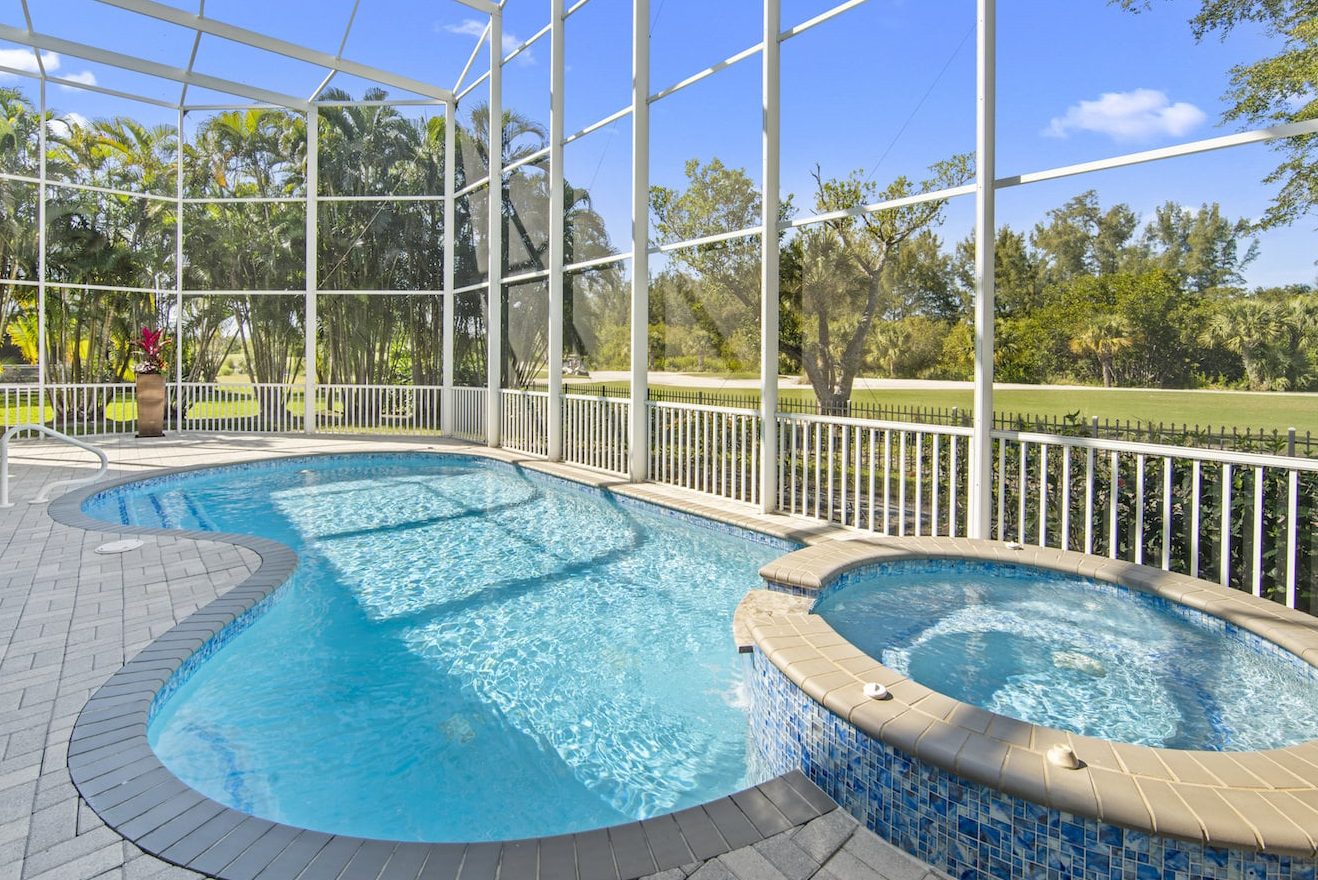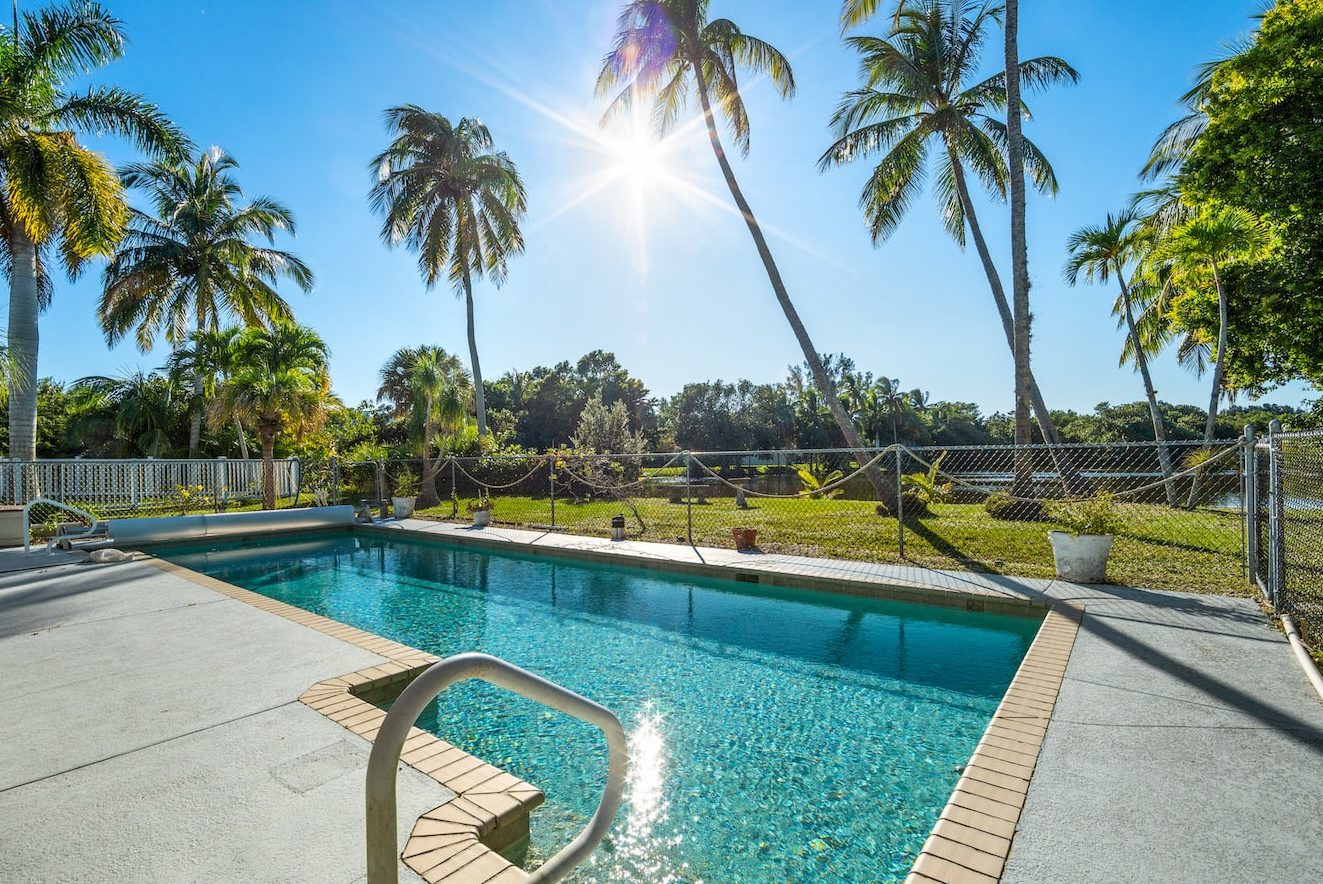One of our recently listed homes on Sanibel has a saltwater pool!

While this isn’t my first experience with saltwater pools, I did get a few questions about it this go-round, so I figured I would share what I know with you!
What is a saltwater pool?
You guessed it… a saltwater pool uses salt instead of chlorine. Well, actually, saltwater pools have what’s called a chlorine generator which breaks up the salt’s sodium and chloride elements through electrolysis and disperses a balanced level of chlorine into the pool. So, while you don’t have to dump chlorine chemicals into the pool, a saltwater pool still contains some level of chlorine.
Resurfacing not only improves the aesthetic appeal of your pool but also helps extend its lifespan. The process involves removing the old, worn-out surface and replacing it with a fresh layer of material, such as plaster, pebble, or fiberglass. Regular resurfacing ensures that your saltwater pool continues to function at its best, with smooth, durable surfaces that are resistant to the effects of salt and chemicals. Maintaining the integrity of the pool surface is key to keeping the water clean and clear, as well as preventing potential leaks or damage over time.
What are the benefits?
Compared to chlorine pools, saltwater pools:
- Are more gentle on your eyes, hair, skin and clothes
- Have no harsh chlorine smell
- Leaves skin silky, helps dry skin
- Can help sore muscles (think epsom salt)
- Is better for the environment, less off-gassing
- Cost less to maintain
- Require less maintenance all together
- No storing of harsh chemicals
Of course, there are a few drawbacks to saltwater pools. For one, they usually cost more to install due to the price tag on the chlorine generator. But, one could argue that the initial cost evens out due to fewer annual maintenance costs. Also, saltwater pool systems are complex, but most pool companies are familiar with the upkeep.

Can you convert your pool to saltwater?
Yes! Most chlorine pools can be converted to saltwater systems with the help of a professional crew. Call one of our local pool companies and have them come out for an assessment of your setup. If you need suggestions of pool companies that our clients have used in the past, shoot us an email at team@mccallionrealty.com.
